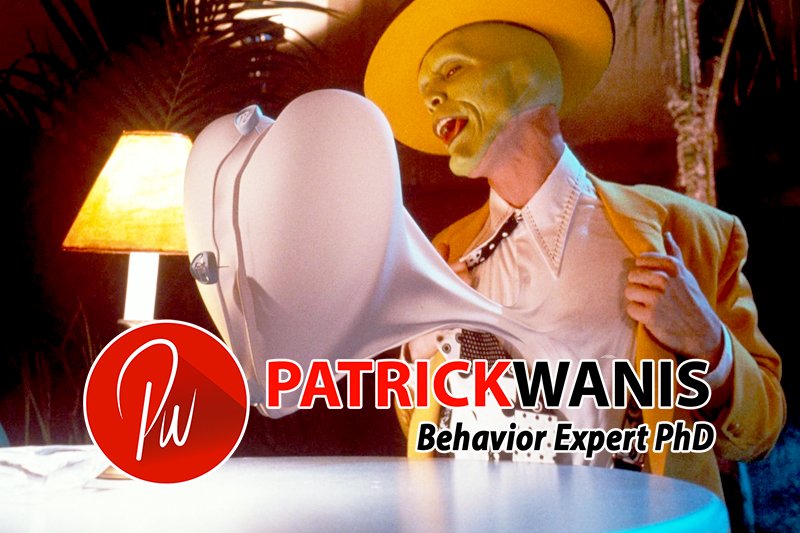
In this week’s Success Newsletter, I would like to reveal some reasons why people reject love or recoil from it.
First a quick update:
The Breakup Test
Are you heartbroken, angry, lost, lonely, confused, depressed, hung up, or pining over your ex? Do you know how your ex is truly affecting you and do you want to benefit from personalize advice, action steps and revelations? Take my free breakup test and get your own personalized report.
Crying and punching pillows does not heal your issues!
Why do most therapies fail? Traditional therapy teaches that to release emotion, one should cry or express that emotion. And yet it fails. Traditional therapy doesn’t focus on getting to the root cause of the issue. SRTT therapy does, though. Listen to the interview I give to Clifton Brantley LMFT about SRTT versus traditional therapy.
Now, let’s talk about some reasons why people reject love or recoil from it.
How do you respond when someone says, “I love you”?
Do you welcome it, reject it, feel anxious or do you automatically reply, “I love you, too” even though you don’t love that person?
The way you respond to offers or expressions of love will depend greatly on the experiences you have had around love, particularly in childhood.
Are you secure in your relationships?
Do you feel anxious and insecure when you are in a relationship?
Do you run, repel or recoil from love and intimacy in relationships?
Do you get close and then run from love and intimacy in relationships?
Do you believe that you don’t need anyone and you definitely don’t need love because you are just fine on your own?
The way you respond and ‘attach’ yourself in relationships as outlined above is molded in your childhood.
What do you believe about love? Do you believe love is freely given or is it cloaked in conditions and expectations?
Do you associate love, intimacy and vulnerability with security and joy or do you associate them with pain and trauma?
What did you experience around love in childhood? Was it freely given or did you experience neglect, abandonment, judgment or abuse?
How was love expressed towards you in childhood? Was it shown with affection, words of encouragement, sincere concern, bonding activities, empathy, understanding or compassion? Or, was it withheld or not shown? Instead of feeling loved, did you feel rejected?
A child’s definition of love is ‘attention.’ What was expected of you to receive love or attention as a child? Were you only given attention when you were good or the opposite – you received attention only when you did ‘bad’ things or something wrong?
One client reacted harshly and offensively to offers of love because she was controlled and manipulated as a child. Her parents would say, “See how much we have done for you; we love you. Now, do as we say and stop making your mother sad or angry.” Thus, the parents were using guilt to control and manipulate their child. Thus, she grew up believing that allowing yourself to be ‘loved’ will result in the other person controlling you by guilt.
Accordingly, she also feared love and was suspicious of love. She wondered why anyone would love her at all; she needed reassurance that love did not come with all of the guilt, expectations, demands and conditions that her parents had taught her.
Another client experienced abuse, and so she was afraid of becoming intimate because she subconsciously believed that getting close and becoming vulnerable would result in pain and abuse.
Yet another client as a child was both told with words and shown with facial expressions, that her opinions, thoughts and feelings were irrelevant. She grew up thinking that she is insignificant and feared intimacy because she felt worthless.
If you understand that each one of us has different definitions of love based on our childhood experiences, then it is easier to show compassion to yourself and to others as well as understand that when someone else is rejecting love it is not about you.
If you want to learn more about Twisted Love and the way attachment styles in relationships are formed, get my new audio book/program “Get Over Your Ex Now!”
If you would like personal help to change your fears around love and intimacy , book a one-on-one session with me.
You can add to the conversation below.
If this newsletter was forwarded to you and would like to receive all of my newsletters please enter your email address on the home page at PatrickWanis.com.
I wish you the best and remind you “Believe in yourself -You deserve the best!”
Patrick Wanis Ph.D.
Celebrity Life Coach, Human Behavior & Relationship Expert & SRTT Therapist
www.patrickwanis.com
Anointed “The Woman Expert” by WGN Chicago, Patrick Wanis PhD is a renowned Celebrity Life Coach, Human Behavior & Relationship Expert who developed SRTT therapy (Subconscious Rapid Transformation Technique) and is teaching it to other practitioners. Wanis’ clientele ranges from celebrities and CEOs to housewives and teenagers. CNN, BBC, FOX News, MSNBC & major news outlets worldwide consult Wanis for his expert insights and analysis on sexuality, human behavior and women’s issues. Wanis is the first person ever to do hypnotherapy on national TV – on the Montel Williams show.
